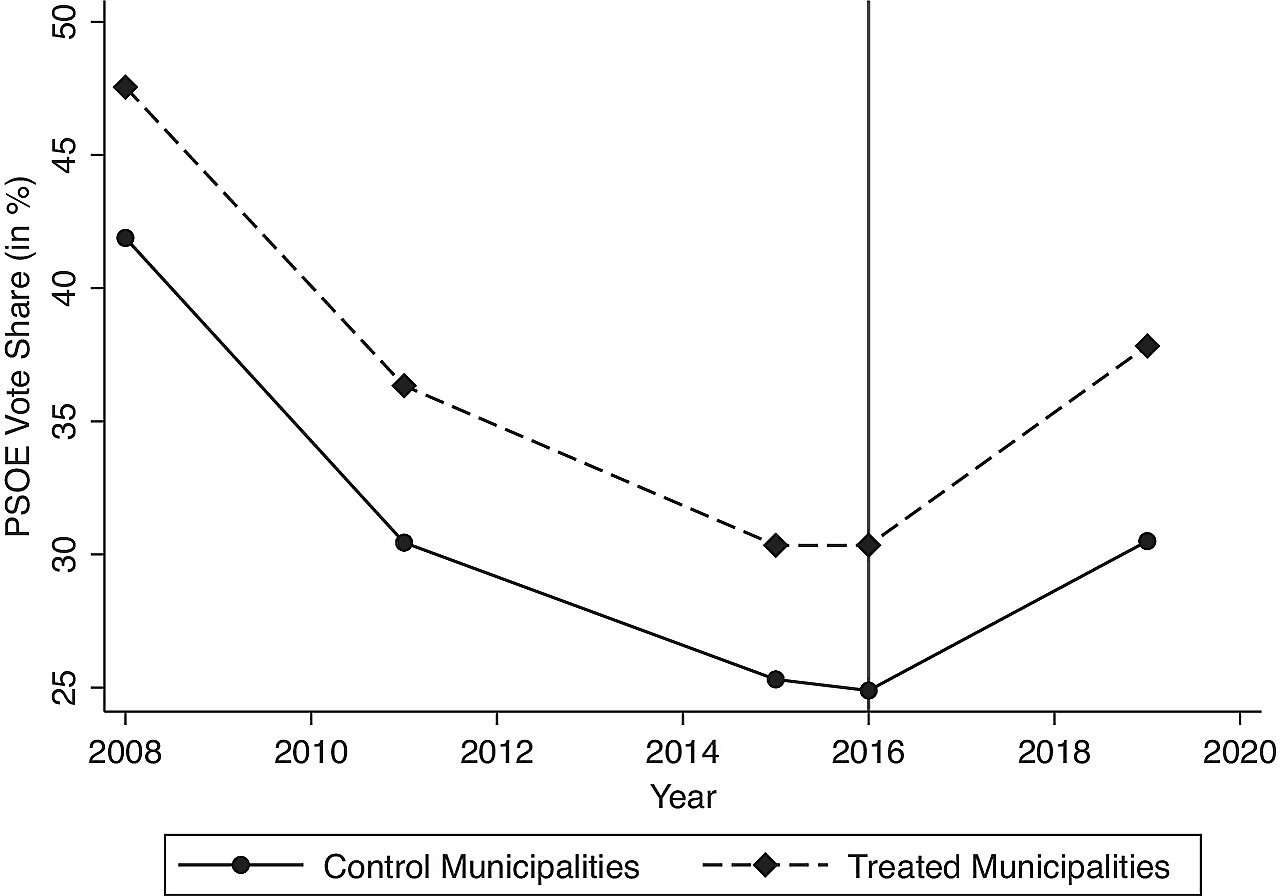

A new study by UCL researchers shows how it’s possible to phase out fossil fuels without sacrificing electoral popularity—even in coal mining regions.
The new paper, published in the American Political Science Review, illustrates how a government that phased out coal mining was able to avoid a backlash from the affected coal regions.
The researchers studied the Spanish Socialist Party (PSOE) government’s policy to phase out coal mining, which was negotiated with affected unions and businesses shortly before Spain’s 2019 national election. Under the resulting “Just Transition Agreement,” 28 coal mines were to be closed by the end of 2019 in three provinces—Asturias, Teruel, and León—and the government agreed to provide €250 million in support to affected workers and investment in affected municipalities, spread over eight years (2019–2027).
The researchers used statistical methods to compare the change in PSOE’s vote share (relative to the preceding election) in municipalities subject to the agreement with its change in vote share in similar, non-coal regions.
They found that the margin by which PSOE’s vote share increased was higher in the coal mining municipalities, implying that the agreement boosted PSOE’s vote in those communities. Further statistical tests and interviews conducted by the research team suggest that this electoral boost was driven by unions’ support of the agreement.
Lead author Dr. Fergus Green (UCL Political Science) said, “The study has important implications for how political parties can craft popular climate policy. It can help inform policymakers who are worried about the political risks of adopting climate policies that impose costs on particular industries and communities.”
The work underscores the political value of a holistic policy approach to the net-zero transition that extends beyond actions that merely reduce greenhouse gas emissions to encompass broader industrial, regional, social, and labor market policies.
In addition, it shows that the process matters. In the Spanish case, dialogue among the government, unions, and businesses built trust and confidence among affected stakeholders and led to an agreement that all parties could support. The unions, in turn, played a constructive intermediating role that built support for the agreement and for PSOE ahead of the election, in coal-mining communities.
It helped in the Spanish case that the industry was small, relatively concentrated, and faced a weak economic outlook independently of the government’s climate policy. These factors both incentivized and facilitated a negotiated solution. In contexts where fossil fuel production is more profitable, negotiating such agreements is politically harder. Accordingly, policies aimed at reducing demand for fossil fuels have a crucial role to play in creating the economic conditions that make policies to phase out supply more politically feasible.
Whether government climate policies target fossil fuel supply or demand, the research shows that the difficult politics of climate change can be managed by incorporating affected stakeholders in the decision-making process and providing a credible pathway for livelihoods beyond fossil fuels.
More information:
Diane Bolet et al, How to Get Coal Country to Vote for Climate Policy: The Effect of a “Just Transition Agreement” on Spanish Election Results, American Political Science Review (2023). DOI: 10.1017/S0003055423001235
Provided by
University College London
Citation:
Study shows how it’s possible to phase out fossil fuels without sacrificing electoral popularity (2023, December 6)
retrieved 7 December 2023
from https://phys.org/news/2023-12-phase-fossil-fuels-sacrificing-electoral.html
This document is subject to copyright. Apart from any fair dealing for the purpose of private study or research, no
part may be reproduced without the written permission. The content is provided for information purposes only.





